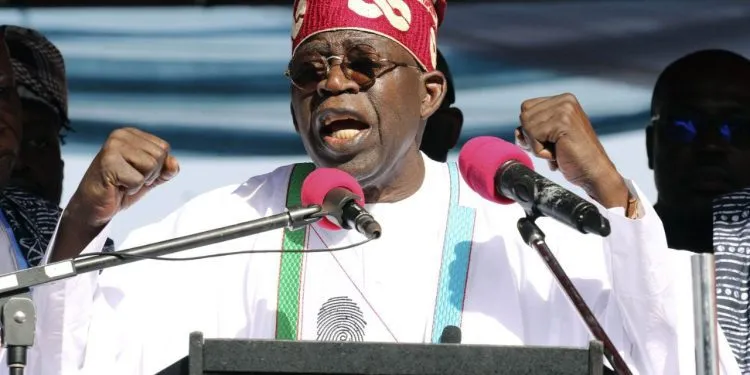Nigerian President, Bola Ahmed Tinubu has recently implemented a three-month ban on publicly funded foreign trips for Nigerian officials. This decision aims to prioritise domestic affairs and ensure that resources are directed towards the development of the country. The ban reflects a commitment to responsible governance and a focus on addressing the needs of the Nigerian people.
The ban, scheduled to go into effect on April 1st, arises from increasing worries about the escalating travel expenses of public officials.
The decision was communicated by Mr. Tinubu’s chief of staff, Femi Gbajabiamila, who emphasised the president’s concerns about the increasing costs of official travel. This decision highlights the administration’s dedication to prudent financial management, especially considering Nigeria’s ongoing economic difficulties.
Public discontent with President Tinubu and his administration’s frequent trips abroad has been growing, with social media serving as a platform for widespread criticism. The government faced intense scrutiny after sponsoring more than 400 individuals to attend the COP28 climate conference in Dubai last November. This event, along with President Tinubu’s frequent trips abroad since taking office in May 2023, has stirred dissatisfaction among the people.
It has been reported that President Tinubu’s travel expenses have exceeded the allocated budget, with expenditures reaching a staggering 3.4 billion naira ($2.2 million; £1.8 million) in just the first six months of his presidency. According to a report from the Nigerian newspaper Punch, the figures provided by GovSpend, a civic tech platform that monitors government spending, reveal a significant 36% increase compared to the budget allocated for 2023.
President Tinubu’s latest initiative to address public grievances is the forthcoming ban on official travel by government officials. In January, he made a notable announcement about reducing the size of official travel delegations. The numbers were cut by around 60%, and even his own entourage faced reductions. A new directive has been issued, requiring officials to obtain the president’s approval for international travel at least two weeks in advance. Additionally, foreign trips will now be limited to only those that are considered absolutely necessary.
Mr. Gbajabiamila highlighted the importance of the travel hiatus in redirecting government officials’ attention towards their primary duties, thus improving service delivery during Nigeria’s economic challenges. President Tinubu’s plans regarding his international engagements have not been disclosed, leading to speculation about the future of his overseas visits.
In the face of increasing criticism, the president and his representatives have staunchly defended his foreign trips, emphasising their importance in tackling Nigeria’s economic challenges. In the midst of a significant cost-of-living crisis, President Tinubu’s recent directive demonstrates a clear commitment to addressing public concerns and prioritising responsible financial management in governance.



